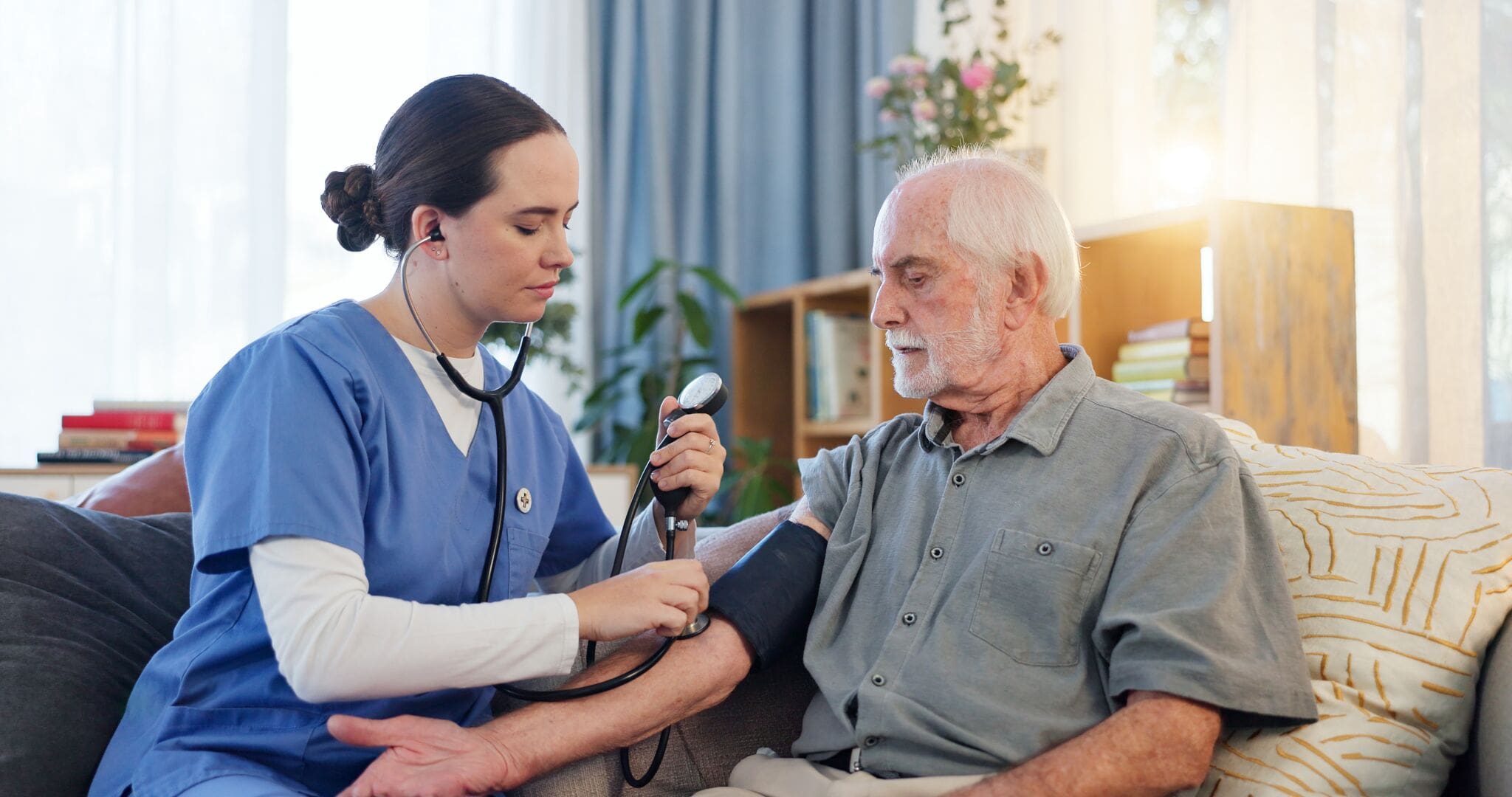In this article
What is OCD
Purely obsessional, or Pure O, OCD is considered to be a form of obsessive compulsive disorder or OCD. Obsessive compulsive disorder is a mental health condition that is thought to affect up to 4% of the UK population at some point in their lifetime.
OCD is characterised by obsessive and intrusive thoughts that cause people to feel upset and distressed. These thoughts can often be sexual, violent, taboo or religious in nature.
People with OCD begin to perform certain behaviours and repetitive acts to help them to cope with their intrusive thoughts. These acts are sometimes referred to as ‘rituals’. These repetitive behaviours may include:
- Thinking neutralising thoughts
- Counting
- Arranging
- Cleaning
- Checking
- Avoidant behaviour
The repetitive behaviours provide a temporary feeling of relief to people with OCD who believe that their thoughts alone will have consequences. Rituals allow people with OCD to feel that they are preventing harm being caused to themselves or others (they feel this harm may occur as a direct result of their intrusive thoughts).
Unfortunately, the relief is always temporary and the cycle of thoughts, bad feelings and rituals repeats, often causing people to feel increasingly out of control and distressed.
Rituals or compulsions can take up a significant amount of time and may have a negative impact on day-to-day life, including work, our relationships and our social life.

What is pure O OCD?
A label of pure O OCD means that someone has OCD that is purely obsessive and shows no signs of outward compulsions. However, both experts and people who suffer from OCD, point out that the title is somewhat misleading as people with pure O still have compulsions – they just keep these compulsions inside their head.
Examples of outward compulsions:
- Obsessive cleaning or hand washing
- Checking that doors and/or windows are locked
- Checking your body or clothes for signs of contamination
- Touching objects/ items in a certain order
- Repeatedly asking a loved one for reassurance
Examples of internal compulsions:
- Checking your memory to see whether an intrusive thought was something that actually happened
- Repeating a word, name or phrase inside your head
- Counting to a certain number
- Trying to replace a negative image inside your head with a positive one
- Rumination – thinking about the same thing over and over
Pure O can be harder to spot as people who suffer from it experience symptoms that are only in their head. If they do not tell anyone or fail to reach out for help, the symptoms of pure O OCD will usually get worse and can have a significant impact on a person’s life, relationships, education or career.
Pure O OCD is not a formal diagnosis. Some people with OCD find the label of pure O OCD helpful, but some do not. There is also some disagreement between clinicians about the veracity of the label, with many doctors using the current official criteria to give an OCD diagnosis, without looking further into subsets of OCD.
How common is pure O OCD?
It is difficult to know how common pure OCD is as it can be hard to spot and may be misdiagnosed as the compulsions are often internal and are not immediately obvious. Additionally, people with pure OCD may be less likely to reach out for help than people with OCD who display more obvious compulsions.
Pure O OCD may also be mistaken for a different mental health condition, such as anxiety. It is important to be open and honest about any problematic thoughts, feelings and behaviours you are experiencing, in order to receive the correct diagnosis and treatment.
How to deal with pure O OCD?
NHS guidance suggests that the best way to deal with OCD is with therapy, such as cognitive behavioural therapy.
In cases of severe obsessive compulsive disorder, medication may be prescribed.
Common medication prescribed to treat OCD (including pure O):
- A type of antidepressant called an SSRI
- A different type of antidepressant called Clomipramine, which is a tricyclic antidepressant
People with OCD are often very distressed by the things that come into their head – if you suffer from persistent, intrusive thoughts, try to remind yourself that they are only thoughts and practice strategies to avoid rumination and cycles that involve compulsive behaviours.
It is important to be honest about your condition with friends and family, however tempted you may be to try to hide it.

Symptoms of Pure O OCD
Studies conducted in 2011 and 2015 found that symptoms of pure O OCD involve a range of mental compulsions such as:
- Praying
- Counting inside the head
- Constant self-reassurance
- Repeating phrases inside the head
- Mentally repeating affirmations or mantras
- Singing a certain song or saying a certain poem inside the head
- Going over previous actions, thoughts, memories and feelings
- Visualising certain images for comfort
- Trying to ‘erase’ specific memories or images
People with purely obsessional OCD may appear distracted, overwhelmed, stressed or secretive. Due to stigma and misunderstanding around the condition, many people try to hide or deny that they have a problem.
The time taken up by thoughts and compulsions (even internal ones) can cause people to struggle to manage their daily responsibilities. You may also notice ‘avoidant behaviour’ – for example wanting to avoid certain people, places or situations without being able to provide a tenable reason for doing so.
What causes Pure O OCD?
It is hard to pinpoint the exact cause of pure O OCD. Studies have found that there are some risk factors that put you at an increased risk of developing OCD, although further research is needed into what causes some people to suffer only from internal compulsions.
Treatment for Pure O OCD
In order to get the right treatment for OCD, you will first need a diagnosis. This is usually done by making an appointment with your doctor to discuss your symptoms. Even if it feels uncomfortable or embarrassing, you should be as honest as possible about the content of your intrusive thoughts, what rituals you are doing and how often. You should also be ready to discuss the impact that your symptoms are having on your life.
Your doctor may ask questions based on the Yale-Brown Obsessive-Compulsive Scale (Y-BOCS). This includes questions such as:
- How much do your obsessive thoughts distress you?
- How hard do you try to resist your obsessive thoughts?
- How much time do you spend performing compulsive behaviours?
- How anxious would you feel if you were prevented from performing your compulsive behaviours?
Your answers will be scored as per a standardised ratings scale, which will indicate whether your OCD is:
- Mild
- Moderate
- Severe
- Extremely severe
The extent to which OCD symptoms are affecting your life will inform the type of treatment you are offered.
Talking therapy for OCD
The treatment for pure O OCD is usually some form of talking therapy, for example:
- Cognitive behavioural therapy (CBT)
- Exposure and response prevention (ERP)
If you are diagnosed with having OCD that only mildly affects your functioning, you may be referred for low-intensity CBT that involves up to ten hours with a therapist. Therapy is available both privately and on the NHS.
Cognitive behavioural therapy works by helping us to examine how our thoughts, feelings and behaviours intertwine. CBT teaches empowerment techniques that allow us to reframe our negative thought cycles and change how we respond to our unhelpful thoughts.
Some of the benefits of using CBT to treat OCD include:
- Sessions can be tailored to a person’s individual needs and goals
- Treatment focusses on the present
- Fewer risks or side effects than using medication
- You can try CBT as many times as needed (for example with a new therapist if previous sessions proved ineffective)
- It teaches coping mechanisms and strategies that can be used long-term
Exposure and response prevention (ERP) is a therapy designed to treat OCD. ERP will encourage you to confront and accept your obsessions and resist the urge to carry out any compulsions. If you have OCD, this means facing your intrusive thoughts whilst resisting seeking comfort in your usual mental rituals. The idea is that over time, we start to realise that our anxiety will start to decrease, without the need to engage in compulsive behaviours.
The process of breaking the cycle between intrusive thoughts and the intense anxiety they induce is referred to as habituation.
- In an ERP session, a person with pure O OCD is allowed to work through their issues and anxieties with a therapist a controlled and safe environment.
- They will be encouraged to confront their intrusive thoughts and acknowledge and accept them, without engaging in ‘neutralising’ or avoidant behaviours.
- Eventually, this should start to reduce the power and frequency of intrusive thoughts, causing them to have less of an impact on day-to-day activities and relationships.
People with OCD often find treatment makes them more distressed at first and may find it a challenge to tolerate the stress and uncertainty that comes with resisting performing a compulsion. It is important to engage with treatment, work at your own pace and not get overwhelmed by the process. This gives the greatest chance of recovery.
Integrating ERP principles into a course of CBT has been proven to be highly effective in the treatment of OCD. Therapy session can be delivered in person or remotely and may involve one to one or group sessions.
Therapy, including cognitive behavioural therapy, will not be able to ‘cure’ intrusive thoughts. Rather, it focuses on how a person responds to these thoughts and empowers them to feel more in control and less responsive to their obsessive thoughts.
After engaging with a course of CBT with ERP, people who suffer from OCD frequently report:
- A reduction in intrusive thoughts
- Less reliance on rituals and safety behaviours
- Increased confidence and reduced anxiety
- A sense of freedom and flexibility in daily life that was not present before therapy
Other potential treatments and techniques include:
- Mindfulness and acceptance-based therapies
- Self-help techniques
- Attending support groups to connect with others who are dealing with OCD
Managing your wellbeing with OCD
Living with OCD can make you feel anxious and stressed. If you have been diagnosed with OCD, or any mental health condition, it is important to look after your wellbeing and health.
Tips to look after your mental and physical wellbeing include:
- Eating a healthy, balanced diet. Avoid sugary and processed food and try to eat at least five portions of fruit and veg each day
- Staying hydrated
- Getting enough good quality sleep
- Avoiding destructive coping mechanisms and behaviours (such as alcohol or drugs)
- Staying active and doing regular exercise
- Trying a relaxing activity that helps with focus such as yoga, meditation, tai chi or mindfulness
- Practice self-care
- Surround yourself with a positive support network
- Ask for reasonable adjustments at school or work
Medication for OCD
If therapy alone is not enough, your OCD is having a moderate or severe impact on your life or you have been identified as at risk (for example you have a history of suicide attempts or self-neglect), you may be referred to a specialist for an assessment. This is to make sure that you get the right treatment for your OCD as well as any other issues you are facing.
Some people will benefit from being prescribed medication to help them with their OCD symptoms. This is usually in the form of an antidepressant. Antidepressants can be taken in conjunction with talking therapies, or to provide some relief while you are waiting to access treatment.
The main SSRI antidepressants that are licensed to treat OCD (including pure O) in the UK are:
- Escitalopram
- Fluoxetine
- Fluvoxamine
- Paroxetine
- Sertraline
Citalopram can also be prescribed, although this is unlicensed.
As an alternative to taking SSRI medication, clomipramine can also be prescribed. This is a type of tricyclic antidepressant medication. You can take this if you are unable to take SSRI medicine, SSRI medicine has not worked, or if you have responded well to clomipramine in the past.
Antidepressants take time to take effect. Current guidelines from the National Institute for Health and Care Excellence (NICE) state that treating OCD with an SSRI may require a higher dose and a longer duration of treatment (at least 12 weeks) for an initial response.
If you taking medication for pure O OCD you will need to be monitored to check how well you are responding and to make sure that you are not experiencing any adverse effects. Mild side effects such as sleeping problems and headaches are common with antidepressants although they should go away after a few weeks. More serious side effects when taking antidepressants, such as suicidal feelings or internal bleeding, are possible, although they are rare.
If you are taking antidepressants, it is vital to:
- Take them exactly as prescribed
- Avoid taking anything that could interact with them (such as illegal drugs or other medicine)
- Give them time to work (up to 12 weeks)
- Be aware of any side effects and report them to your GP
- Attend appointments with your doctor to monitor your progress
- If you decide to stop taking them, do so slowly and safely
If you experience a medical emergency, it is vital that you get urgent care by calling 999 or going to your local hospital.
Pure O OCD examples
Here are some examples of how a person may experience pure O OCD, although it is important to note that people with OCD will have their own individual experiences:
Example One – Religious Intrusive Thoughts
Maria keeps having intrusive thoughts about denying the existence of God, Jesus and the disciples. She feels panicked that her thoughts are blasphemous and that her family will be punished because of them. She believes that if she recites a prayer in her head three times an hour for three hours after having the thoughts, she will protect her family from punishment.
Example Two – thoughts about harming someone
Louise is a new mum. She has begun to have persistent intrusive thoughts that she has harmed her baby. She loves her child and does not want to do anything to hurt them, but she keeps worrying that she has. To try to get these images out of her mind she repeats a particular poem over and over in her head.
Example Three – intrusive sexual thoughts
Matt has been married to his wife for a year and is very happy in the marriage. However, due to having OCD, he cannot stop the repetitive images about cheating on her, especially with both her mother and sister. These thoughts become graphic, but they are not fantasies; Matt finds these thoughts distressing and worries that they indicate he does not love his wife.
To ‘neutralise’ these thoughts, Matt plays in his head everything he has done and said to his wife over the last 24 hours to reassure himself that he does love her and is not being unfaithful.

Risk factors for pure O OCD
A number of factors are thought to influence a person’s risk of developing OCD, however, there is currently no conclusive evidence that shows definite cause and effect.
You may be more at risk of developing symptoms of OCD if:
- You have a family history of OCD (this could be due to genetics or due to learnt behaviour where obsessions and compulsions were used as a coping strategy)
- You have had significant trauma in your life or adverse experiences in childhood (such as bullying or neglect)
- You are experiencing high levels of stress of anxiety
- You are pregnant or post-partum
It is possible that people with certain personality types may be more likely to develop OCD, for example if you have meticulous tendencies and set very high standards for yourself. People with pure O OCD often develop hyperawareness, causing them to constantly monitor their mind for thoughts and go over any feeling and emotions they are experiencing. If you are already someone who has heightened self-awareness, this may make your experience of OCD symptoms more severe.
Some people find that taking antidepressants such as selective serotonin reuptake inhibitors (SSRIs) helps to alleviate some of the anxiety that they experience from having OCD. Further research is needed to discover whether lower serotonin levels in the brain may be a risk factor for developing OCD.
OCD symptoms often start to show themselves during adolescence or early adulthood which are usually times when we are experiencing periods of significant change. Although the onset of symptoms is considered rare after the age of 30, in reality anyone of any age or gender can develop OCD.
It is not known exactly why some people develop pure O OCD and do not perform physical acts and rituals, instead performing them inside their own head. It is possible that some people who are extremely self-aware and conscious of those around them are unable to resist their intrusive thoughts or compulsive behaviours but are somehow able to internalise their compulsions.
Although the signs of pure O OCD may not be immediately obvious to the outside world, the condition can still be destructive and causes serious distress and turmoil to anyone suffering from it. Obsessive compulsive disorder cannot be cured, but with the right treatment and a commitment to recovery, pure O OCD can usually be managed in a way that allows you to feel far less anxious and significantly more in control of your thoughts and behaviours.






